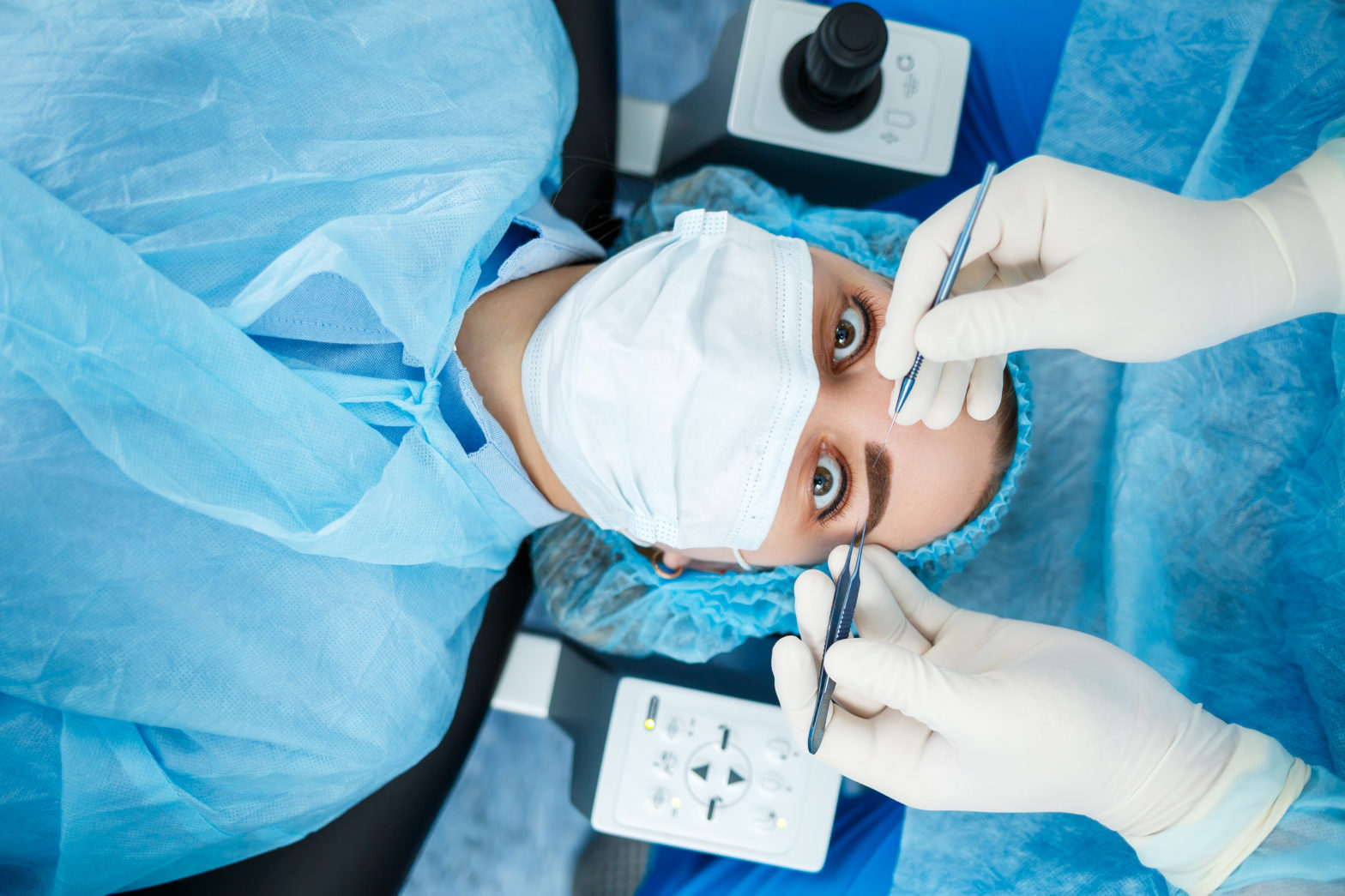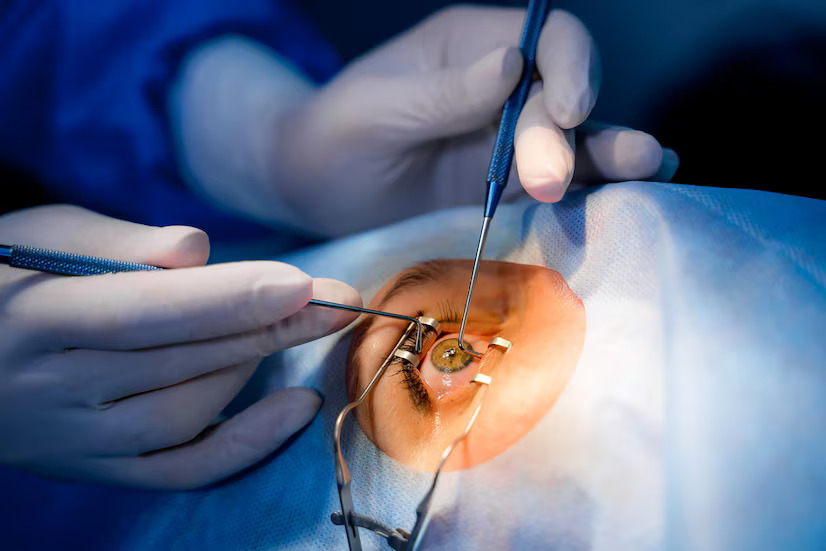In general, cataract surgery is not an emergency surgery but an elective procedure. This does not devalue the significance of getting it done at the right time. Then question arises, what is the right time? Right time is when patient starts seeing blurred, when patient can’t perform daily routine activities/professional activities effectively because of foggy vision, when there is no improvement in eye sight with a change of spectacles, when colour perception changes significantly, when patient can’t identify familiar faces till one comes very near to them. Naturally despite these symptoms one can wait for cataract surgery and get it done at a suitable time in consultation with their cataract surgeon. So, when does cataract surgery becomes an emergency?
One of my patients named Mr. Pawar , a retired person came with blurred vision problem in mid-February this year. After a detailed check-up, he was diagnosed to have cataract in both eyes. Cataract was more in the right eye in which vision had dropped significantly and he was able to read only up to 6/24. With his left eye, he could read last line on the vision chart with some difficulty (6/6 P). We advised him to undergo cataract surgery in the right eye, but he did not turn up for surgery. Then suddenly, a week back he came to the hospital with complaints of total loss of vision and pain in his right eye. Now after almost 6 months of lockdown period, there was a mature swollen cataract in the right eye. His vision was finger counting in the right eye and 6/18 in the left eye. Right eye pressure was high. We immediately gave him medicines to reduce the eye pressure and then the cataract surgery was performed. This experience prompted me to write a blog and I want to educate and emphasize the importance of getting cataract surgery done at right time. So, I am going to discuss following points in this blog
- What are pitfalls of delaying cataract surgery?
- How do ophthalmologists manage patients with advanced cataract?
- What result should a patient expect out of a delayed cataract surgery?
What are pitfalls of delaying cataract surgery?
There are several pitfalls of delaying the cataract surgery-
- Delaying cataract surgery leads to progression of the grade of cataract. Depending on the type and grade of cataract, the delayed cataract surgery can become a risky procedure. The amount of energy needed to emulsify the hard lens increases and this can cause damage to the surrounding structures. There is increased risk of other intra-operative problems like wound burns, rupture of the capsular bag of the lens, increased surgery time, loss of lens support etc. Also, some postoperative complications like high eye pressure, corneal edema, etc. can happen.
- Progression of cataract can lead to inflammation and high pressure inside the eye. Both can cause complete irreversible loss of vision if not managed on an emergency basis.
- Many old people who have advanced cataracts have poor vision in dim light conditions. Due to this they are at a risk of fall etc. while using washrooms at night. It was found that 60% of fractures in old people were due to the cataract and associated poor vision.
How do ophthalmologists manage patients with advanced cataract?
Certain pre-operative assessments become necessary in hard/advanced cataracts-
- Sonography- B scan. Sonography informs about the status of retina (screen present on the back surface of eyes). Due to advanced nature of the cataract often retina is not visible during the routine eye check-up and hence an ultrasound scan is needed to ensure that retina is in its normal place.
- Corneal specular microscopy test is done to ensure optimal health of the cornea. Hard cataracts need more energy during the cataract surgery, and this can cause damage to the cornea. So, it is important to ensure good corneal health.
- If intra ocular pressure is raised in the affected eye, pressure is managed beforehand with the help eye drops, tablets and Inj mannitol is given before surgery to control IOP.
- Surgeon may contemplate complications that might occur and keeps OT ready for unforeseen difficulties/ complications (CTR, Vitrectomy cutter etc.)
What result should a patient expect out of a delayed cataract surgery?
Patient should expect longer recovery time around 2 to 3 weeks for visual rehabilitation than for normal cataract surgery. Additionally, depending on other associated factors like high eye pressure etc. there can be a guarded visual prognosis. Patient should discuss in detail about what to expect in such cases with their cataract surgeon.
Our patient, Mr. Pawar was operated after completion of pre-operative formalities on an urgent basis and after managing his high eye pressure. Keeping in mind all the problems we might face, we kept OT ready for all possibilities. We took all precaution during the cataract surgery. Given the advanced surgical equipment’s and good surgical experience of our team, cataract surgery was highly successful. Now he is enjoying excellent vision in his right eye. He wants to soon get operated for left eye as well!
In a nutshell, there is no advantage in delaying a cataract surgery. On one hand you are increasing the risk of complications and on the other you are denying yourself of a clearer vision. If it is advised, then better to discuss it with your cataract surgeon and plan it given your convenience at the earliest!









